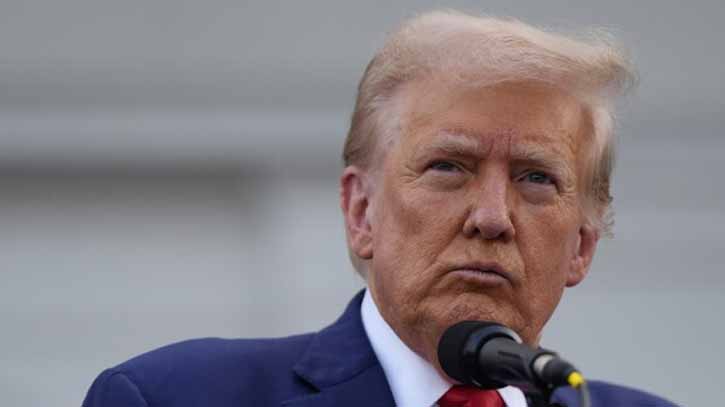
Photo: Collected
President Donald Trump has signed an executive order seeking to end birthright citizenship for children born in the United States to undocumented immigrants. The controversial move is expected to face immediate legal challenges, as it contradicts over 150 years of constitutional interpretation under the 14th Amendment.
The executive order, titled Protecting the Meaning and Value of American Citizenship, stipulates that children born in the U.S. after 19 February 2025 will not be granted citizenship if their mother is either unlawfully in the country or temporarily authorised to reside in the U.S., and the father is neither a U.S. citizen nor a permanent resident.
As he signed the order in the Oval Office on Monday, President Trump declared, "This is a big one. People have been wanting to do this for decades." He expressed confidence in the administration's legal position, asserting that they have "very good grounds" to defend the policy.
The move, however, represents a significant departure from the traditional interpretation of the 14th Amendment, which guarantees that "all persons born or naturalised in the United States" are citizens. Legal experts have long upheld this clause as the foundation of birthright citizenship, regardless of parental status.
Legal and Social Ramifications
The policy's potential consequences have sparked widespread concern. Critics argue that it would leave newborns in legal limbo and force undocumented parents-many of whom are already vulnerable-into even more precarious situations.
"This executive order undermines the very principles enshrined in the Constitution," said Sarah Miller, a constitutional law professor at Georgetown University. "It's not just an attack on undocumented families; it threatens to destabilise the legal fabric that binds American society."
Immigration advocates have vowed to challenge the order in court, with several organisations already preparing lawsuits. They contend that altering birthright citizenship through executive action is unconstitutional, and any such change requires an amendment to the Constitution-a process that demands significant legislative and state-level support.
Political Context
Trump signed the order just hours after taking office, signalling his administration's prioritisation of hard-line immigration policies. During his campaign, he repeatedly criticised what he termed the "abuse" of birthright citizenship, framing the issue as a matter of national security and sovereignty.
The executive order is likely to deepen partisan divides in Washington, with Democrats and some moderate Republicans opposing it as an overreach of presidential authority. Meanwhile, Trump's supporters argue that the policy addresses long-standing concerns about immigration.
A Path Forward
As the nation braces for a protracted legal battle, the future of birthright citizenship remains uncertain. For now, the executive order adds yet another layer of complexity to the already fraught immigration debate in the United States.
It remains to be seen how the courts will interpret the administration's attempt to redefine a constitutional guarantee that has been a cornerstone of American citizenship since 1868.
Messenger/JRTarek








